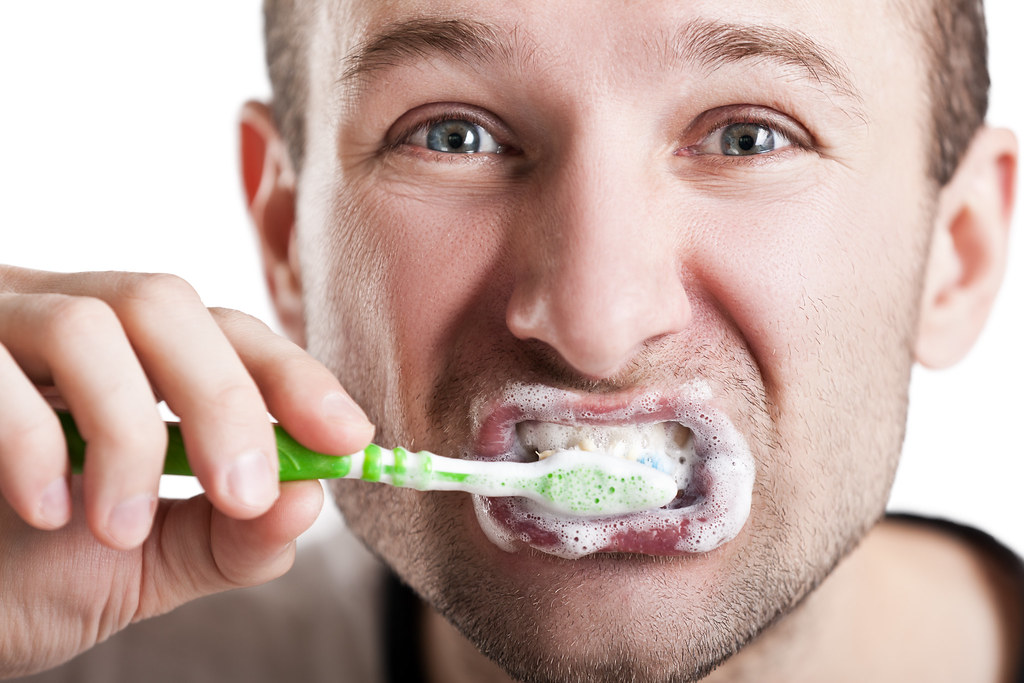
How often do you brush your teeth? Depending on who you ask, the answer can be drastically different. Some people brush after each meal, and with three square meals that means brushing 3 times a day. Others brush once in the morning and once at night.
Some only brush once a day, often at night. And some brush once every few days, claiming that they never had issues with cavities or plaque buildup even when scarcely brushing. But enough with the anecdotes, what do the professionals think?
The general consensus among dentists is that the minimum amount of brushing you should do is two times a day, for at least two minutes each session using a brush with soft bristles. So if you are brushing at least this much, congratulations! Remember, these are minimum recommendations, so if you are wondering “Can I brush my teeth 3 times a day”, the answer is Yes but there are some things to keep in mind.
How Many Times Should You Brush Your Teeth in a Day?
Brushing your teeth, for the most part, is a good thing. People often don’t brush enough. The average brushing time for the general population is only 45 seconds per session, and that’s if they even brush consistently. That’s a far cry from the recommended two brushing sessions for two minutes each day.
According to this clinical study, people who brush longer tend to remove more plaque from their teeth compared to people who don’t brush as long. Specifically, researchers found that a person who brushed for 3 minutes (180 seconds) removed 55% more plaque than someone who brushed for only 30 seconds.
And someone who brushed for the recommended 2 minutes (120 seconds) removed 26% more plaque than the general population that tend to brush for only 45 seconds.
As a general rule of thumb, brushing your teeth for longer is better. However, keep in mind the purpose of brushing: to remove plaque and to apply fluoride to your teeth which prevents tooth decay. Fluoride can protect your teeth from germs that cause cavities for up to 12 hours. As such, you should space your brushing sessions out such that your teeth is always protected by fluoride.
When is Brushing 3 Times a Day Bad?
After eating something acidic. You might be tempted to brush immediately after eating a meal, however that is not always the best idea. If your meal consisted of something acidic such as lemon/lime juice or sugar, then you may cause damage to your teeth by brushing immediately afterwards.
You will have to wait for the saliva in your mouth to slowly neutralize the acidity. If you don’t want to wait, then eat or drink something high in phosphate or calcium, such as milk or cheese. This can undo the damage done to your tooth enamel by the acidic food.
If your toothbrush does not have soft bristles. You may have missed this important point, but experts recommend you brush at least twice a day for two minutes each day using a soft-bristled toothbrush. Most people brush too hard; it does not take much force to scrub the plaque off your teeth. Scrub using a gentle, circular motion across each quadrant of your mouth.
Firm or hard bristles on the toothbrush, coupled with aggressive brushing technique can wear down your enamel and gums. Even brushes with soft-bristles will eventually get more abrasive and sharp over time, so make sure to replace them every three months.
How About Brushing Teeth Once a Day?
If it is okay to brush 3 times a day, how about brushing teeth once a day? Unfortunately, this is not recommended because your teeth will go for extended periods of time without the protection of fluoride. If you can only brush once a day, then try to do it after your last meal.
You have to make sure you are brushing for a long enough period of time (at least two minutes, three would be even better) and to use a soft bristle toothbrush. When you wake up in the morning, consider using a fluoride mouthwash so that your teeth can get the fluoride it needs to prevent tooth decay and cavities.
Also make sure not to brush or use mouthwash immediately after eating a meal with acidic foods such as processed foods or sugar. Since almost every food has sugar or is processed in some way, will have to wait. You can speed this process up by drinking milk or eating cheese (foods high in calcium), or simply wait until the saliva in your mouth neutralizes the acids.
Also make sure you space out the brushing sessions so that you are protected by the fluoride in your toothpaste for as long as possible. The final brushing session you do in a day should be done after your final meal of that day. Make sure to replace your brush once every three months, otherwise it will become more abrasive and will wear down your enamel and gums.
Photo Credit: anhưng